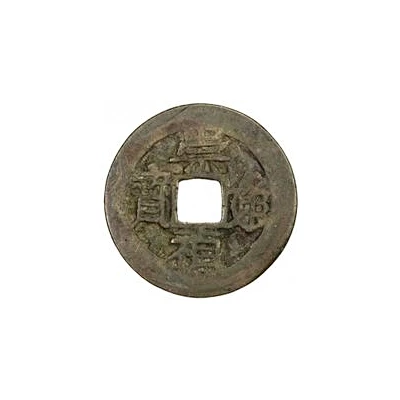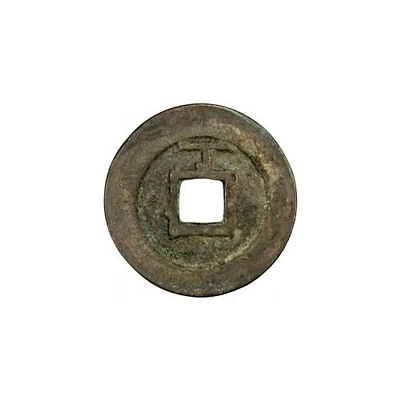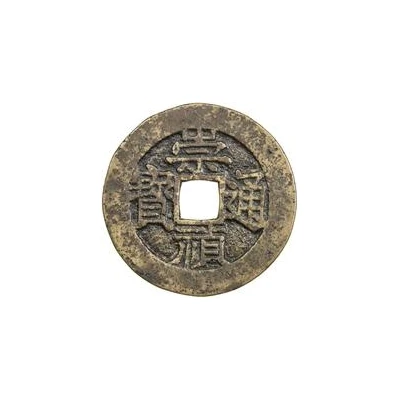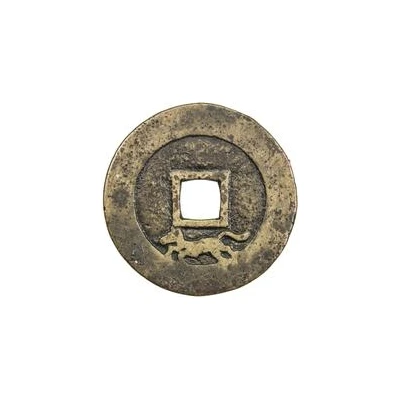


© Stephen Album Rare Coins
1 Cash - Chongzhen Tongbao; northern type; with year
| Brass | 2.58 g | 24 mm |
| Issuer | Empire of China |
|---|---|
| Emperor | Ming dynasty › Chongzhen (崇祯帝) (1627-1644) |
| Type | Standard circulation coin |
| Years | 11-17 (1634-1640) |
| Calendar | Chinese cyclical (cycle starting in 1624) |
| Value | 1 Cash |
| Currency | Cash (621-1912) |
| Composition | Brass |
| Weight | 2.58 g |
| Diameter | 24 mm |
| Thickness | 1.3 mm |
| Shape | Round with a square hole |
| Technique | Cast |
| Orientation | Medal alignment ↑↑ |
| Demonetized | Yes |
| Updated | 2024-10-04 |
| Numista | N#222586 |
|---|---|
| Rarity index | 94% |
Reverse
One Chinese ideogram above representing a year in the Chinese cyclical calendar.
Script: Chinese (traditional, regular script)
Lettering: 丁
Translation:
Ding
Year 14
Edge
Plain
Comment
These coins have dates written in the cyclical calendar, which repeats on a 60-year cylce. This partical cycle started in 1624. For each date, there is a combination of two characters used, but for these coins, the second character is omitted (丁 rather than 丁丑).Hartill suggests the larger, heavier coins (around 26 millimetres and weighing 1.3 Qian) were the first 1 Cash pieces produced. By 1630, coins minted in the north weighted 1.0 Qian and coins minted in the south weighed 8 Fen or less.
The Northern types and the Southern types are differenciated by the left part of Zhen.
- Northern types: 礻
- Southern types: 示
Interesting fact
One interesting fact about this coin is that it was issued during the reign of the Chongzhen Emperor, who was the last emperor of the Ming dynasty. He ruled from 1627 to 1644, and his reign was marked by political turmoil, economic difficulties, and foreign invasions. Despite these challenges, the Chongzhen Emperor made efforts to reform the government and military, and his reign saw the introduction of new currencies, such as this brass cash coin.

